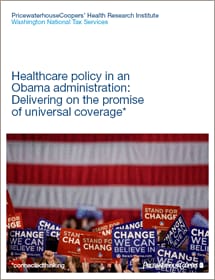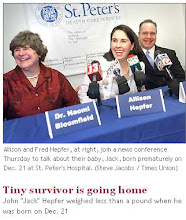It's not much of an idea and in my opinion, by itself will save nothing and maybe even add additional costs. AHA is suggesting
a pilot program of health care panels to mediate differences between supposedly injured patients and health care providers. These panels would oversee an Administrative Compensation System (ACS). Although the concept is good, it does not represent forceful action on the malpractice crisis, but it is rather just another "study". These mediation panels have proven to be unwieldy when previously tested by various states. The trial lawyers hate the AHA proposal and physician panels members have found the panels to be more of a debating club that rarely recognizes true medical malpractice. Honestly, in most US malpractice cases, health care providers generally prevail anyway. This panel system could make it even easier for patients to "win the lottery" and get their big settlement. The whole ACS is a pet project of
Michelle Mello, a Professor of Law and Public Health at Harvard University. I suggest that the good Professor spend some time practicing medicine and then decide what would be a good solution to the malpractice problem.
Here's also an
AP Wire story about the AHA proposal. In my opinion,the AHA proposal does not do enough to reduce costs caused by defensive medicine and is just being proposed to appease opponents of the present health care reform package. This Obamacare proposal does
nothing about the malpractice issue and in general, will do very little to contain costs. Health care should not be a growth industry.

